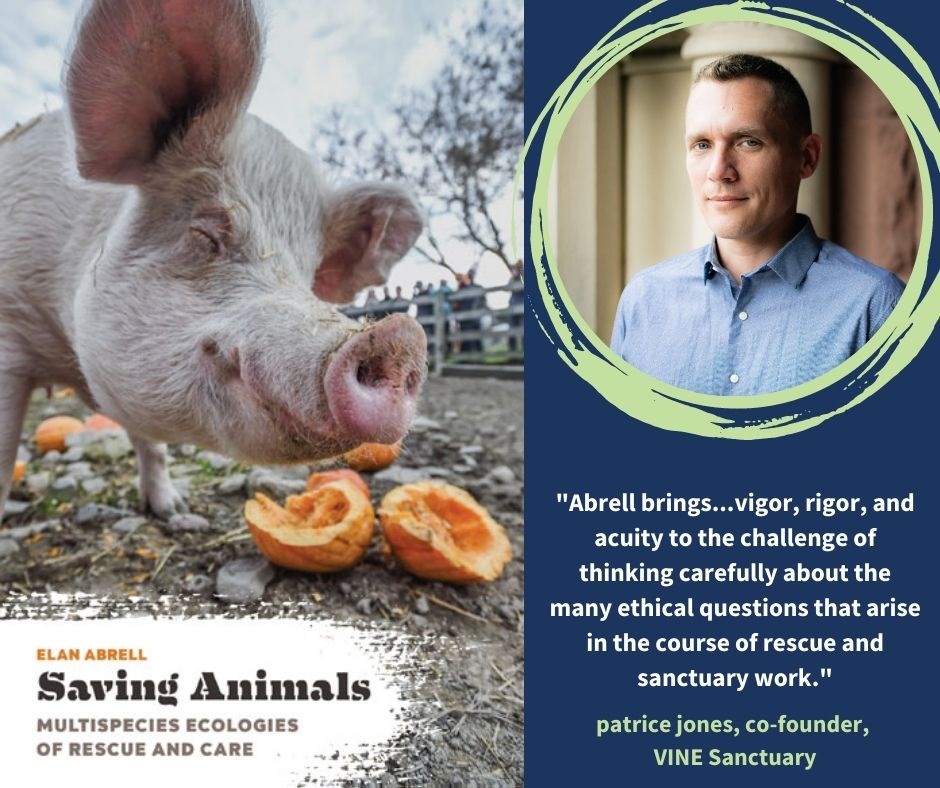
New Book Saving Animals: Multispecies Ecologies of Rescue and Care Sheds New Light on the Ethical Issues of Animal Sanctuaries
For over 40 years animal protection advocates have established sanctuaries and shelters for animals who have fallen victim to humans. This includes sanctuaries for formerly farmed animals or animals who have survived the entertainment industry. There are also shelters that rehabilitate abandoned companion animals. Through its Just One Health approach, Phoenix Zones Initiative emphasizes that the health and wellbeing of animals, as well as of humans and our ecosystems, are all interconnected. In his new book, Saving Animals: Multispecies Ecologies of Rescue and Care, vice president of programs for Phoenix Zones Initiative, Elan Abrell, JD, PhD, explores the ethical issues of establishing such habitats for those animals who have been abused and mistreated that enable them to live out their lives and thrive.
“Through ethnographic research at animal rescue facilities across the United States I wanted to grasp the true meaning of what saving, caring for, and providing sanctuary really mean,” says Abrell. “I wanted to understand why some people care about animals in order to understand how we could persuade others to care about them as well. And it became obvious to me that the best way to do that is to work with those who care about animals to the point of dedicating their lives to rescuing and caring for them.”
Abrell says the focus then shifted to the bigger question of how animal caregivers address the many challenges of trying to care for animals in a broader societal context in which animals are still being used and exploited for human benefits.
“So, I examine how sanctuaries deal with all those challenges,” says Abrell. “The resource challenges, the spatial limitations, and the many ethical considerations that go into making the best possible life for animals, even while captivity still places certain limits on how good their lives could be. And in the end, I consider how animal sanctuaries can serve as models for creating a better future for both people and animals.”
As an anthropologist, Abrell bridges anthropology with animal studies and political philosophy in the first major ethnography to focus on the ethical issues animating the establishment of such places.
It illustrates how caregivers and animals respond to these challenges by co-creating new human-animal ecologies adapted to current social and environmental conditions. His work also explores the socially constructed and historically shifting dividing line between who does and does not count as human, and how economic processes have reinforced this dividing line to rationalize the exploitation and mistreatment of both people and animals.
D